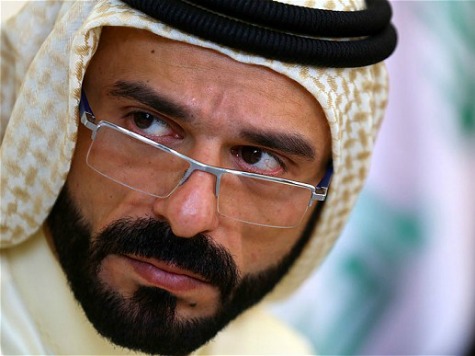U.S. officials are calling the jihadist terror group Islamic State of Iraq and al-Sham (ISIS) an “extremely high” threat to the United States, as the group has significantly more international ambition than similar terror cells. The news comes as Sunnis allied with ISIS vow to remain so until Nouri al-Maliki is replaced as Iraqi prime minister.
Officials speaking to NBC News on the condition of anonymity told the news outlet that the United States is treating ISIS like an “extremely high” terror threat, even on United States soil. The group, one official noted, was “especially worrisome because of their commitment to attack the West” and because of their closer ties to it.
Unlike groups like Boko Haram in Nigeria or al-Shabaab in Somalia, ISIS boast a formidable roster of citizens of Western countries. According to the estimates of one member of Parliament, there could be as many as 1,500 British nationals fighting for ISIS in Iraq and Syria. Many jihadists have also traveled from Australia, Spain, and the United States, and in the UK there have been reports of jihadists faking their deaths to reenter the UK unnoticed.
Despite the well-catalogued graphic violence that ISIS commits on a daily basis in the name of jihad, it has managed to create allegiances within Iraq, capitalizing on the strife between the Sunni and Shia communities in that country. In an exclusive comment to The Telegraph, Ali Hatem Suleimani, the leader of Iraq’s largest Sunni tribe, says that he and his tribe will help ISIS fight the government until Maliki steps down. “We are not responsible for ISIS. Look what has Maliki has done – look at the two million refugees. He has destroyed and killed – and where was the world then?” Suleimani tells the newspaper, adding that he was not supportive of ISIS, but “we can fight ISIS and al-Qaeda whenever we want to,” implying that now was not the time.
The sectarian nature of the struggle is made even more complex by the many positions taken by international powers, including that which pertains to the Kurdish ethnic majority fighting ISIS in the nation. In a comment believed to be an attack on the demands of the Kurdish people to establish their own sovereign nation, Deputy Prime Minister of Turkey Bulent Arinc remarked Monday that his nation would not support a “tattered and divided” Iraq, calling also for the removal of “foreign forces” from the country, which would include nations as disparate as Iran and Russia.

COMMENTS
Please let us know if you're having issues with commenting.